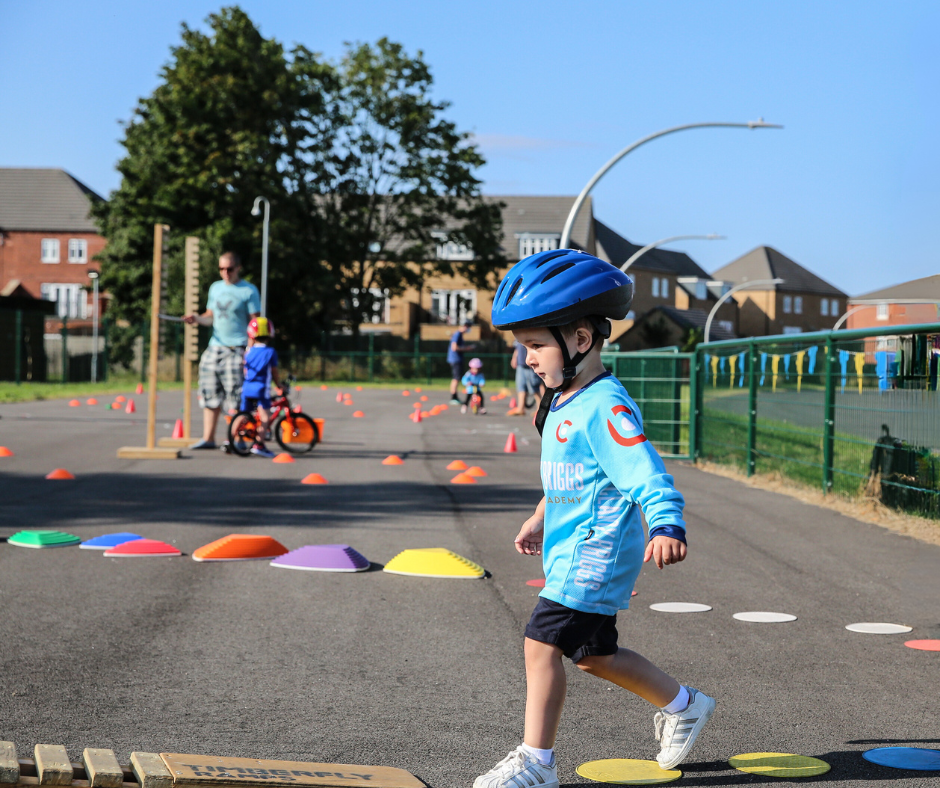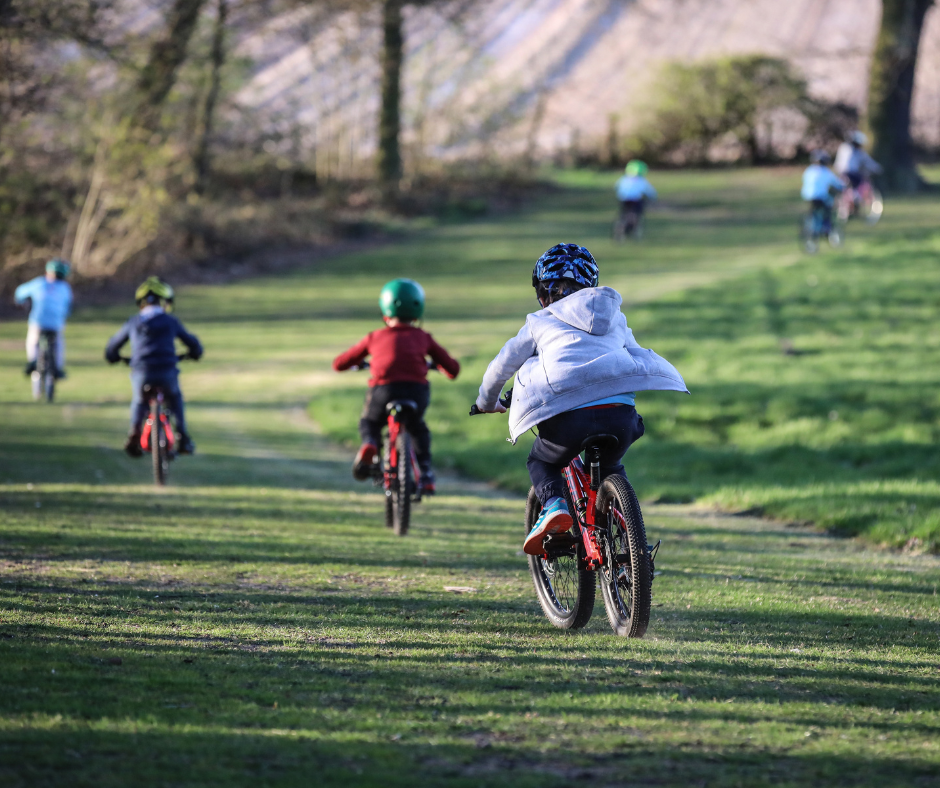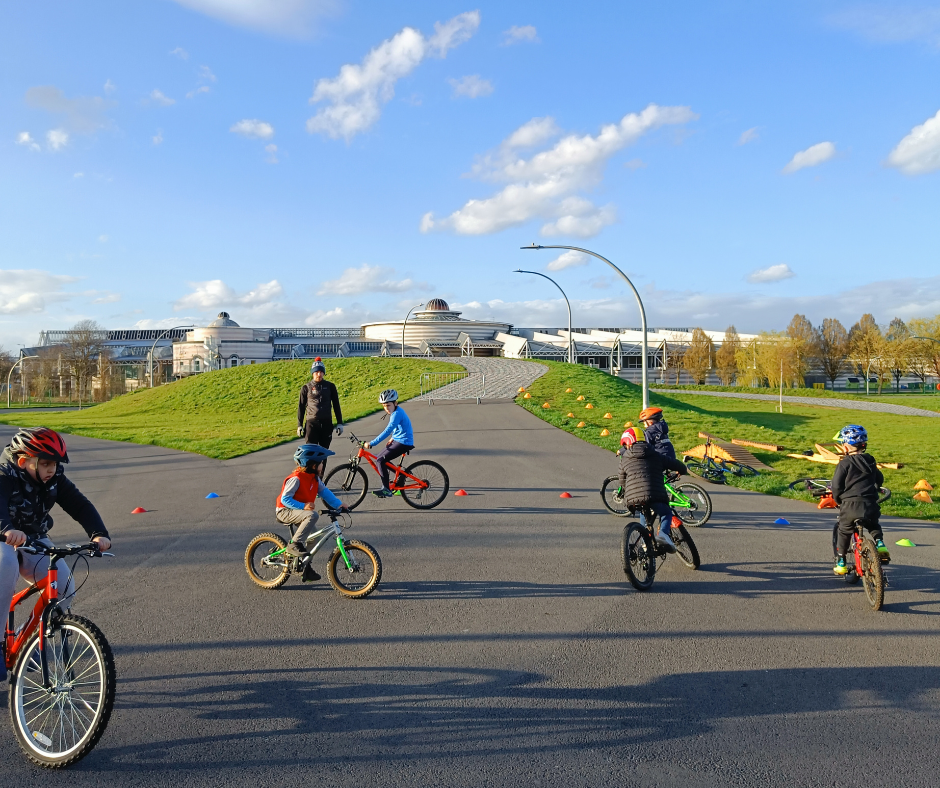Learn To Ride Top Tips
Learning to ride a bike is a rite of passage for many children. It's a skill that brings not only a sense of accomplishment but also freedom and independence. However, for some youngsters, the thought of riding a bike can be intimidating. Yet, with the right approach and a bit of patience, we firmly believe any child can master this essential skill.
At Clancy Briggs we’ve got two types of classes to help your youngster master the ability to ride independently. Firstly, our balance classes are suitable for those aged 18months +. Here we focus on the fundamentals needed to ride, working on strength and balance off bikes as well as on it. Our second-class type is our Learn classes. These classes are aimed at riders 7+, the focus here is more orientated around on bike learning. It’s age appropriate to help riders feel comfortable and ensure no one feels embarrassed about learning to ride a bike.
Both classes take place at the Doncaster Dome cycle Track - a purpose build cycling facility in the heart of Doncaster.
Our Balance classes take place on Saturday Mornings 10:00-10:40 – you can book a place on our balance class here.
Our Learn classes run-in month-long courses at selected times of the year, our next course is in April & can be booked here.
We’re so passionate about getting people on bikes, we’ve put together some top tips to help you practice at home so checkout our 10 top tips below for teaching a child to ride their bike.

1. Choose the Right Bike:
Before starting the learning process, it's crucial to ensure that the child has a bike that suits their size and ability. The bike should not be too large or too small, and the child should be able to touch the ground comfortably while seated.
2. Start with Balance:
Many children start with a balance bike, which has no pedals and allows them to focus solely on learning to balance. If a balance bike isn't available, you can remove the pedals from a regular bike to achieve a similar effect. Encourage the child to scoot along, lifting their feet off the ground and balancing as they go.
3. Find a Safe Learning Environment:
Choose a flat, open area with smooth pavement, such as a quiet street or an empty parking lot. In our sessions we use the Doncaster Dome cycle track, this purpose build facility has no traffic, plenty of space and a mixture of terrain to use at our sessions.
4. Use Protective Gear:
Safety should always come first. Ensure the child wears a properly fitted helmet at all times while riding a bike. Knee and elbow pads can also provide added protection, which can be useful especially during the learning phase.
5. Teach Proper Positioning:
Show the child how to sit on the bike with their back straight, hands on the handlebars, and feet on the ground. Encourage them to look forward, rather than down at their feet, to maintain balance.

6. Practice Coasting:
Once the child feels comfortable balancing, encourage them to lift their feet off the ground and coast for short distances. This helps them get a feel for the bike's momentum and how to control it.
7. Introduce Pedalling:
Once the child has mastered balancing and coasting, it's time to add pedals back to the bike. Start by having them practice pushing off with their feet and pedalling slowly. Gradually increase speed as they become more confident.
8. Provide Encouragement and Support:
Learning to ride a bike can be challenging, and children may become frustrated at times. Offer plenty of encouragement and praise for their efforts, even if they only make small progress. Celebrate their successes and reassure them that it's okay to make mistakes.
9. Be Patient:
Every child learns at their own pace, so it's essential to be patient and understanding throughout the process. Avoid putting too much pressure on them or rushing their progress. Remember that learning to ride a bike is a journey, and the most important thing is that the child feels supported and encouraged along the way.
10. Practice, Practice, Practice:
Like any skill, learning to ride a bike takes practice. Encourage the child to ride regularly and provide opportunities for them to continue improving their skills. Whether it's a short ride around the block or a family bike outing, the more they practice, the more confident they'll become
Learning to ride a bike is a memorable milestone in a child's life. By following these tips and techniques, you can help your child develop the confidence and skills they need to ride safely and enjoyably. So, dust off those bikes, grab a helmet, and get ready to embark on this exciting journey together!

